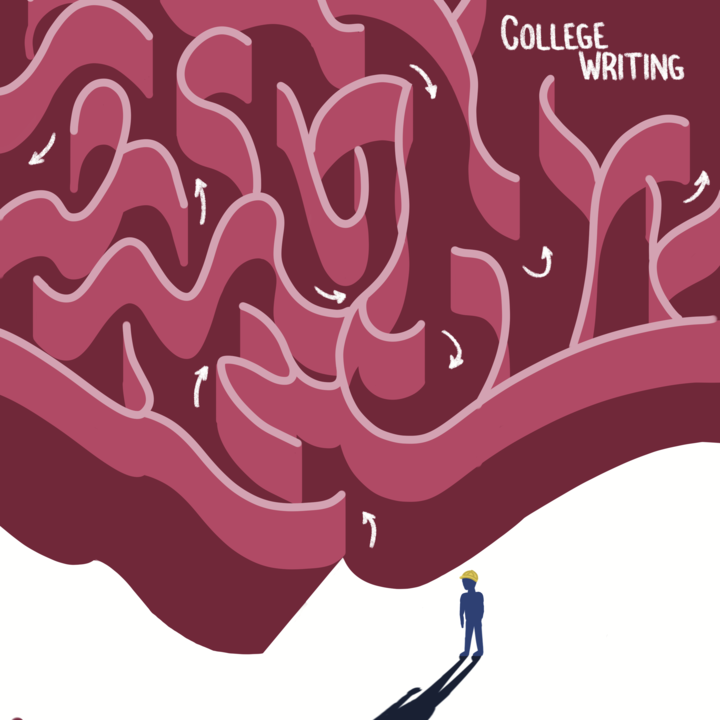Forum
Even engineers need to take College Writing

Zach Ruwitch | Staff Illustrator
College Writing was the first time I was allowed to get critical, despite being instructed to write “rhetorical” and “critical analysis” essays in previous English classes. With a pointed nod at College Board’s AP English Language course, I argue that most public high school curricula in the United States suppress students’ desire and ability to criticize what they’re told to read. College Writing is the only required course for every single undergraduate student — except those in the McKelvey School of Engineering, who may take a pre-test to be exempted. Yet, this was the first class in my academic journey where my instructor encouraged me to think critically.
The stated reason makes sense if we think of the course as just a writing class. Engineers-in-training don’t need to learn to write stylistic essays about Orwell and Fitzgerald. They’ll be working with numbers and measurements, and they won’t even need to publish research findings in journals like in many other STEM fields. Plus, they have so many tough classes they need to get through in four years — so long as they don’t write with complete incoherence, we should just let them through so they can get started on Physics and Thermodynamics.
Though assignments vary from class to class, most of the work students do in College Writing is analytical. This means, yes, the author uses anaphora and metaphor to support their claim. It also means that the author exists or existed in a human society with identities, rules, and expectations that affected their objectives and the way they carried those out. College Writing isn’t just a writing class. It’s a thinking class.
When my high school English curriculum involved racist, misogynistic, classist readings without the acknowledgement that these behaviors and beliefs are unacceptable, I argued with my teachers. “It’s just how it was,” they told me in an attempt at placation. “I don’t want to read this book with insufferably bigoted characters and a resounding fable of ‘oppression good, Black people bad!’” I replied.
Though many students are aware of how public high schools train them to become obedient 9-5 workers with limited creativity and personal opinion, I don’t think enough people notice this aspect of suppression. It stood out to me because I always felt like something was wrong, and I became combative without fully understanding why: I had to ignore an author’s endorsement of systemic and interpersonal discrimination and focus my analysis on textual elements.
Researching for my final College Writing paper about English pedagogy in U.S. public high schools, I understood that this was a feature of “Formalism” or “The New Criticism,” an analytical technique that considers only what’s on the page and excludes historical, social, and cultural context from the analysis. I can’t dump my 10 page essay on its faults here, but the main consequences were cookie-cutter responses that suited what students knew the institution (College Board) or authority (teacher) wanted to hear, rather than what they personally believed.
In an English class, being “critical” means — or should mean — that you recognize the identity of the author/artist/creator, their intended audience, their intended effect on that audience, and the implications of that effect. It means you can say that something is wrong, that it shouldn’t be the way it is, or that you disagree with it because of who you are. Part of College Writing’s goal is to teach students to think about why someone wrote or made something. While the lens is often on literature, it’s a broadly essential skill when navigating a world full of coded messages, subliminal marketing, and propaganda. Why did this person make this YouTube video? Why does this ad show these kinds of people doing these things? Why are mass media outlets pushing certain stories to the front of their pages? Why do members of the government keep discussing these issues and not others?
If College Writing is beneficial to all other undergraduate students, WashU owes its engineering students the curriculum it so prides itself on. Engineering students are no less part of the world we live in; they, too, take in messaging and media, will decide what company to devote their labor to based on marketing and networking, and are likely voting citizens of the United States who have an impact on future policy. While the level of prescribed critical thinking varies from instructor to instructor, College Writing is an essential part of a college education that prepares students to know their own beliefs, understand the motives of others, and go from there.
